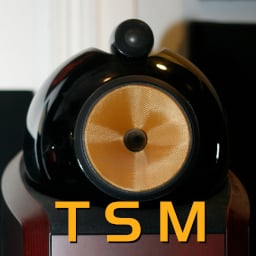Obviously floating point is of huge benefit for many audio dsp calculations, from my observations (non-programmer, just long time DAW user, from back in the day when fixed point with relatively low accumulators was often what we had to work with, versus now when 64bit floating point for processing happens more as the rule) - e.g. fixed point equalizers can potentially lead to dc offset in the results. I don’t think peeps would be getting as close to modeling non-linear behavior of analog processors with just fixed point math either.
audio mastering engineer at Total Sonic Media - https://totalsonic.net/
- 0 Posts
- 7 Comments

 2·9 months ago
2·9 months agoYes, while you can still do 3g/2g phone calling in most of Europe, the only hold out in the US for this is that T-mobile still has 2g calling in some areas, but they have announced that this will be shut down sometime in the soonish future (it was scheduled to be all shutdown of April this year, but they announced this was delayed to a time tbd, likely in order to continue to serve all the ATM’s and iot devices that are still running “legacy” systems being used beyond supposed eol). Which is why I reverted to using de-googled AOSP for my daily driver - I like to be able to use my phone as a phone after all.

 3·9 months ago
3·9 months agoDalton is an amazing and very cool guy, and when he left it was indeed a big hit to dev speed at first, but recently a few super smart and dedicated guys have been able to do a big jump in updating the base from 16.04 to 20.04 (which involved moving from upstart to systemd) and they are getting close to rebasing to 24.04 (target for this is this June in fact). Plus Waydroid support has gotten really good in the time since Dalton moved on, and snap support is getting worked on now as well.

 6·9 months ago
6·9 months agoI am talking about VoLTE (Voice over LTE) which is the protocol just for making phone calls over 4g networks - NOT 4g/LTE mobile data! Ubuntu Touch has worked well with 4g/LTE mobile data for 10 years now.

 102·9 months ago
102·9 months agoAndroid devices run deprecated Linux kernels that have a bunch of proprietary binary blobs plopped onto them, so technically “Linux”, but not an easily updateable mainline kernel like most people are referring to when talking about “Linux.”

 15·9 months ago
15·9 months agoBetween October 2018 to April 2023 I used as my daily drivers a series of phones (OnePlus One, Meizu Pro 5, Volla Phone, Xiaomi Redmi Note 9 Pro) all flashed to running Ubuntu Touch. During this time UT (Ubuntu Touch) was less developed than it is now, in that Waydroid (which allows using some Android apps over a Lineage OS container that boots on top of UT) did not yet exist, and Libertine (which allows some Linux desktop apps built for Ubuntu arm64 deb to be installed) was not as functional. And yet is still worked great for my modest needs (e.g. I don’t do banking, or any kind of more advanced gaming, on my phones).
The reason I reverted last year to de-googled Android (“vanilla” Bliss ROM on a Xiaomi Redmi Note 10 Pro) is that being in the USA, the carriers here have closed or are closing down all their 3G/2G networks, and requiring VoLTE for phone calls. While UT supports LTE for mobile data without a problem, given that VoLTE is a proprietary closed protocol with implementation varying between carrier, oem and device, the only device which UT currently has VoLTE support for (and which is still shaky) is the PinePhone Pro.
Anyhoo - the UT dev community is pretty small, but definitely dedicated, and still offers some promise into the future for a nice privacy respecting alternative OS for mobile devices and tablets. Hopefully at some point VoLTE, and a few other issues gets figured out for it so I can return to using it for my daily driver - in the meantime I’ve got it on a OnePlus 5t as a secondary device, and on a Lenovo x306f 10" tablet.

As far as tablet usage goes - with Ubuntu 23.10 running the latest “Surface Linux” kernel on my Surface Go gen 1, Wayland is finally buttery smooth. Screen rotation with Wayland is near instant, where as on xorg takes a couple seconds.
I can’t say the same for my dual boot desktop that has an Nvidia 1050ti in it going to a 55" tv monitor via HDMI though - had to hook up a second monitor from dvi just to be able to login - which was not the case on Xorg.
Oh well, baby steps, but Wayland is definitely growing up fast and getting closer to being daily dtiver ready for nearly all use cases.